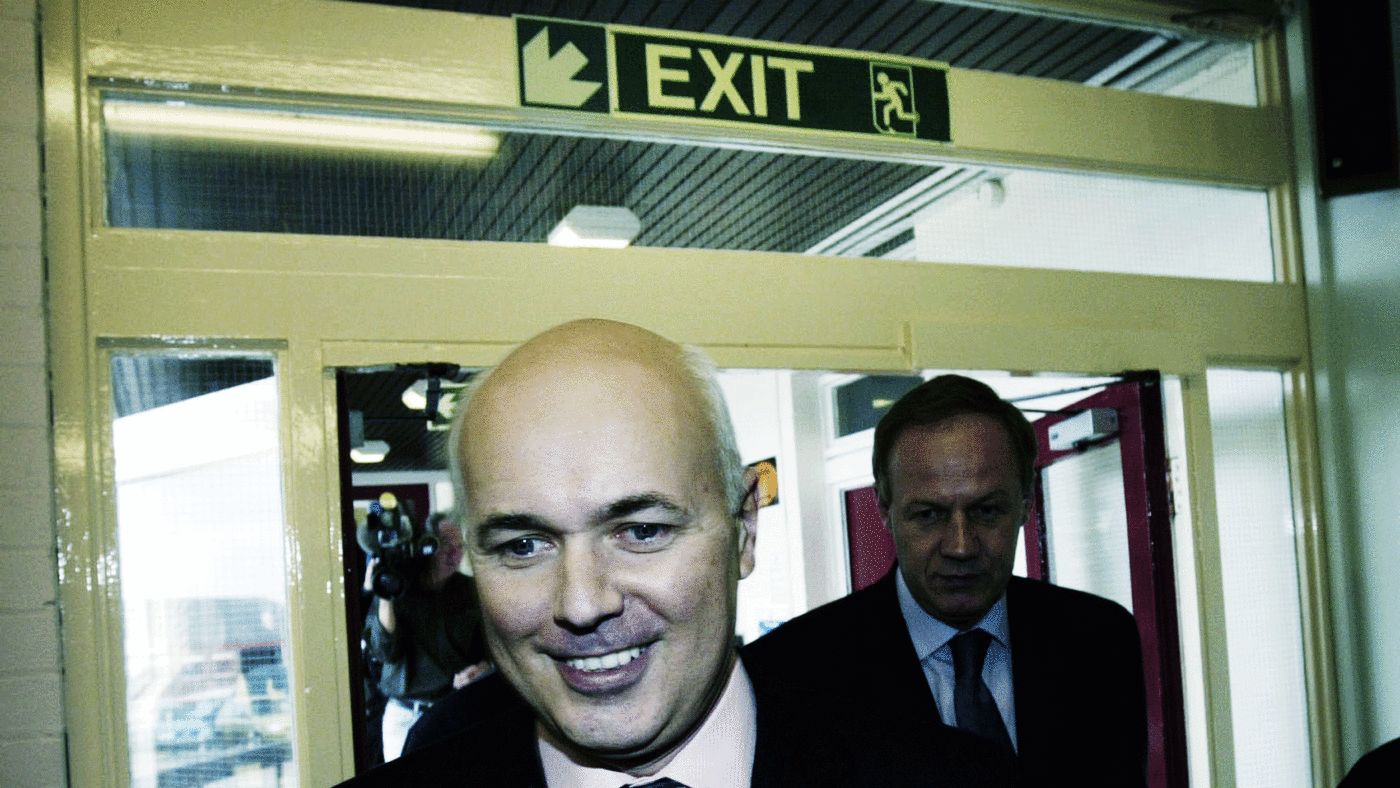Ordinarily, few but the most committed politics nerds have a detailed knowledge of the 1922 Committee of Tory MPs. Thanks to the recent speculation about the Prime Minister’s future, however, the workings of ‘the ’22’ have become something of far more than just academic interest. Indeed, it tells us a great deal about the predicament MPs are facing now.
The last leader MPs tried to bring down was, of course, Theresa May. Though it’s worth remembering that May did actually win a vote of confidence back in 2018 pretty comfortably. It wasn’t until the Tories took a hammering at the 2019 European elections that she finally decided to throw in the towel.
The last time backbenchers successfully removed a leader was Iain Duncan Smith in 2003 when the committee’s chairman was Michael Spicer – and his diaries make for instructive reading this week.
Then, as now, a vote of no confidence could be triggered if 15% of Conservative MPs called for one in writing to the chair. In 2003 the threshold was 29, today it is 54. But it’s not quite as simple as that.
Spicer’s diary shows how large the gap really is between what an MP will say on the news and what they do to back it up in private. The first no-confidence letter came in on November 5 2001, shortly after Duncan Smith became leader, but it took nearly two years for him to be ousted. As the pressure built, some MPs were publicly calling for Duncan Smith to resign without having actually submitted their own letters.
Throughout 2003, therefore, the chairman was uncertain what would happen. Polls fluctuated. Opinion moved in favour of Duncan Smith, then against. All the while there were many in the Tory party who argued that their leader was hopeless, but who didn’t have an alternative. The headlines didn’t reflect reality. As might be happening with Boris now, it was said that IDS couldn’t survive so many times that it became background noise.
On October 7, 2003 the news was full of rumours that many MPs had written no confidence letters. They hadn’t. Three days later the papers were mixed and the rebels seemed scared off. On October 12, Spicer was getting calls from people who wanted a ‘bloodless solution’. He told them, simply, ‘there isn’t one’. It’s easy to call for change in public, but difficult to be the one who pulls the trigger in private.
The ’22 exists to mediate that tension. Whatever the public circus right now, the real news is what we don’t know yet. A bit of rumpus at PMQs is no guarantee that changes are happening under the surface. It would be entirely unsurprising if those who were currently shouting the loudest were among the last to submit letters. When you see quotes about how many letters have been submitted, ignore them. Spicer received an astonishing number of forgeries, many of them on Carlton Club notepaper. The true number is a strict secret and it’s more than the chairman’s career is worth to be indiscreet.
To return to the IDS saga, by October 21, 2003 even the sympathetic papers were running two-page spreads about the crisis in Duncan Smith’s office. And still Spicer had only received five letters. By the 23rd it was up to 15. Confident predictions of when the total would be reached were made. They were all wrong. It was October 28 when they hit the requisite number, after months of howling, acres of hideous press coverage, an endless number of pundits saying he couldn’t go on. A vote was held the following day and Duncan Smith lost by 90 votes to 75. Even then, it took him another eight days to step down.
The lessons of 2003 are that MPs will complain and condemn much more readily than they will act. Tory MPs are also unreliable narrators – according to Robert Colvile the current Chair of the ’22, Sir Graham Brady, once told an event at the Centre for Policy Studies that a colleague had announced he’d submitted his letter of no confidence, then withdrawn it, without said letter ever existing.
Bringing down a leader is a slow and uncertain process. No-one really knows what’s going on. MPs will gladly join the baying for blood while keeping their nibs dry. Columnists will write up what they believe and present it as what they know. Maybe we’re a handful of letters away. Maybe not. Only Graham Brady knows. All we can do is wait.
Click here to subscribe to our daily briefing – the best pieces from CapX and across the web.
CapX depends on the generosity of its readers. If you value what we do, please consider making a donation.


